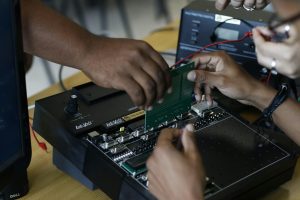How Civic Engagement Activities Foster Political Awareness
Civic engagement refers to the active participation of citizens in the processes and decision-making of their communities, be it at the local, state, or national level. It encompasses various forms of involvement, such as voting, volunteering, attending town hall meetings, and advocating for social issues. While civic engagement activities are often seen as a means to promote community development and social change, they also have a significant impact in fostering political awareness among individuals and groups. In this article, we will explore how civic engagement activities can enhance political awareness and why it is essential for a healthy and functioning democracy.
The Role of Civic Engagement in Political Awareness
Political awareness is the understanding of political systems, institutions, and processes that shape our societies and how individuals and groups can have an impact on them. It also involves being knowledgeable about current political issues, policies, and debates. The media and formal education are often seen as the primary sources of political awareness. However, civic engagement activities provide another crucial avenue for individuals to develop a deeper understanding of political issues and structures.
Empowering Citizens to Become Active Participants
Civic engagement activities create opportunities for citizens to become active participants in their communities. For instance, volunteering at a local non-profit organization or participating in a community clean-up event exposes individuals to the problems and issues facing their communities. As they become involved in finding solutions and making a difference, they develop a sense of agency and empowerment. This sense of agency translates into a desire to impact the broader political landscape, leading them to become more politically aware.
Encouraging Critical Thinking and Analysis
Civic engagement activities also encourage individuals to think critically about the issues affecting their communities and the broader society. Through discussions, debates, and working together to address social problems, individuals develop their analytical skills. They learn to question and examine the information presented to them, which is a crucial aspect of political awareness. As opposed to simply accepting information at face value, individuals become more knowledgeable and aware of the complexities and nuances of political issues.
Exposing Individuals to Diverse Perspectives
Participating in civic engagement activities provides individuals with an opportunity to interact with people from different backgrounds, cultures, and ideologies. This exposure to diverse perspectives challenges their own views and worldview, prompting them to think critically and broaden their understanding of political issues. As individuals interact and collaborate with others who hold different opinions, they learn to appreciate the value of diverse viewpoints in shaping a healthy political discourse.
Creating a Sense of Responsibility
A key aspect of civic engagement is the belief that individuals have a responsibility to contribute to the betterment of their communities and society at large. By actively participating in civic engagement activities, individuals come to understand the impact their actions can have on the political landscape. They learn that their voices can make a difference and that their inaction can also have consequences. This sense of responsibility fuels a desire to be more politically aware and informed, as individuals realize that they have a stake in the political processes and decisions that affect their lives.
The Significance of Political Awareness in a Democracy
In a democracy, the power ultimately lies with the people. However, for the people to exercise that power effectively, they need to be well-informed and engaged in the political processes. Political awareness helps individuals understand their rights and responsibilities as citizens and makes them more capable of holding their elected officials accountable for their actions. Moreover, a politically aware and engaged citizenry encourages a healthy and robust democracy by promoting meaningful dialogue and putting pressure on the government to address social issues.
The Role of Civic Education
In addition to participating in civic engagement activities, individuals also require education on civic rights and responsibilities and the mechanisms of the political system. Civic education, whether in formal education settings or through community organizations, plays a significant role in fostering political awareness. It equips individuals with the knowledge and skills necessary to actively engage in the political processes and make informed decisions.
Conclusion
Civic engagement activities go beyond simply contributing to the betterment of our communities; they also serve as a vital avenue for promoting political awareness. By empowering individuals, encouraging critical thinking, and exposing them to diverse perspectives, civic engagement activities play a crucial role in keeping citizens informed and engaged in the political landscape. A politically aware and engaged citizenry is essential for maintaining a functioning democracy and ensuring that the voices of the people are heard and represented in the decision-making processes.










